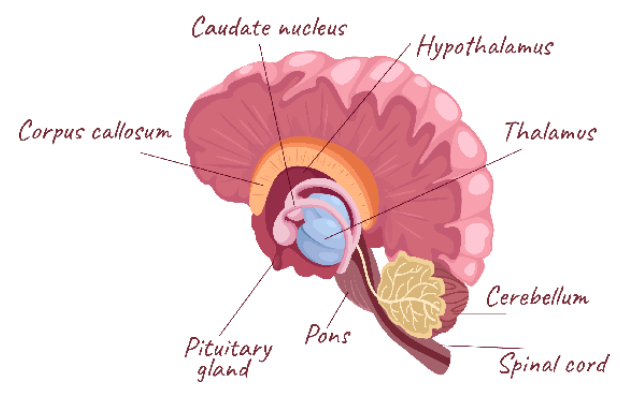Blog

Resilience is a crucial skill that helps individuals navigate the ups and downs of life. It’s the ability to bounce back from adversity, adapt to challenges, and maintain a positive outlook. Building resilience isn’t just for those facing major crises; it’s an essential part of everyday life that allows us to cope with stress, overcome obstacles, and maintain our mental health. Here are some strategies to cultivate resilience in your daily routine, each elaborated with practical tips and insights. Cultivate a growth mindset Adopting a growth mindset means viewing challenges as opportunities for learning rather than insurmountable obstacles. This perspective encourages us to see setbacks not as a reflection of our abilities but as stepping stones towards growth. When faced with difficulties, we can ask ourselves what we can learn from the situation. For instance, if we didn’t perform well in a task, we can reflect on specific skills to improve or different strategies to try next time. Embracing a mindset that values effort and progress helps us approach life’s challenges with curiosity and determination, fostering resilience that grows with each experience. Practice mindfulness Mindfulness involves staying present and fully engaging with the current moment. Techniques such as meditation, deep breathing, or simply taking a moment to observe our surroundings can significantly reduce stress and enhance emotional regulation. We can incorporate mindfulness practices into our daily routine by starting our day with a few minutes of meditation or taking short breaks to focus on our breath. By grounding ourselves in the present, we can better manage anxiety and cultivate a clearer perspective on challenges. This practice not only helps reduce stress but also enhances our overall well-being. Build strong connections Social support is a vital component of resilience. Surrounding ourselves with positive, supportive people who encourage us and provide a listening ear is essential. Building strong relationships offers emotional support and fosters a sense of belonging, which is crucial during tough times. We can nurture our friendships and family ties by scheduling regular catch-ups, engaging in shared activities, or simply reaching out for a chat when we need support. Creating a reliable support network helps us feel more secure and valued, making it easier to navigate life's challenges. Set realistic goals Setting achievable goals gives us a sense of direction and purpose. It’s important to break larger goals into smaller, manageable steps to avoid feeling overwhelmed. For example, if we’re aiming to change careers, we can start by researching our options, updating our resume, or networking with professionals in our desired field. Celebrating our accomplishments along the way, no matter how small, boosts our confidence and motivates us to keep moving forward. Reflecting on our progress regularly reminds us of how far we’ve come and allows us to adjust our goals as needed. Embrace change Change is an inevitable part of life. Rather than resisting it, we can learn to embrace change as a natural process. This mindset shift can significantly reduce stress and anxiety associated with uncertainty. Flexibility allows us to adapt and find new solutions when faced with unexpected situations. To practice this, we can step out of our comfort zones regularly - whether by trying new activities, meeting new people, or learning new skills. The more we practice accepting change, the easier it becomes to navigate life’s uncertainties, helping us view change as an opportunity rather than a threat. Develop problem-solving skills Resilient individuals are effective problem-solvers. When confronted with challenges, we should take a step back and assess the situation. Instead of reacting impulsively, we can use a structured approach to problem-solving. By brainstorming possible solutions, weighing the pros and cons of each, and choosing a course of action, we empower ourselves to tackle issues head-on rather than feeling overwhelmed. Practising these skills in low-stakes situations builds our confidence for more significant challenges when they arise. Take care of yourself Physical well-being directly impacts emotional resilience. We need to prioritise self-care by maintaining a balanced diet, exercising regularly, and getting enough sleep. Engaging in physical activity, even just a daily walk, can release endorphins that improve our mood and overall outlook on life. Additionally, we can incorporate relaxation techniques such as yoga or tai chi, which not only improve physical health but also promote mental clarity. When our bodies are healthy, our minds are better equipped to handle stress and adversity, making self-care an essential part of our resilience toolkit. Practice gratitude Incorporating gratitude into our daily routine can shift our focus from what’s going wrong to what’s going well. We can keep a gratitude journal where we write down three things we are grateful for each day. This practice enhances our overall outlook and helps us find joy even in challenging times. By regularly acknowledging the positive aspects of our lives, we cultivate a more optimistic mindset, which is a key element of resilience. Seek professional help when needed Building resilience doesn’t mean we have to go it alone. Sometimes, talking to a professional can provide the support and guidance we need. Whether it’s a therapist, a counsellor, or a trusted mentor, seeking help can be a sign of strength, not weakness. At KCPsych, we offer services designed to help individuals build resilience and cope with life’s challenges. If you’re looking for assistance, we encourage you to reach out. Together, we can work towards enhancing your resilience and overall well-being.

Today, we delve into the complex world of Attention Deficit Hyperactivity Disorder, or ADHD , and its relationship with Attention Deficit Disorder (ADD). There are a few misconceptions around this condition, so this article will explore what ADHD is, how it is diagnosed and clarify some misconceptions that are frequently seen. As an example, ADD is no longer a standalone diagnosis but is now considered a part of ADHD, with varying levels of hyperactivity.

